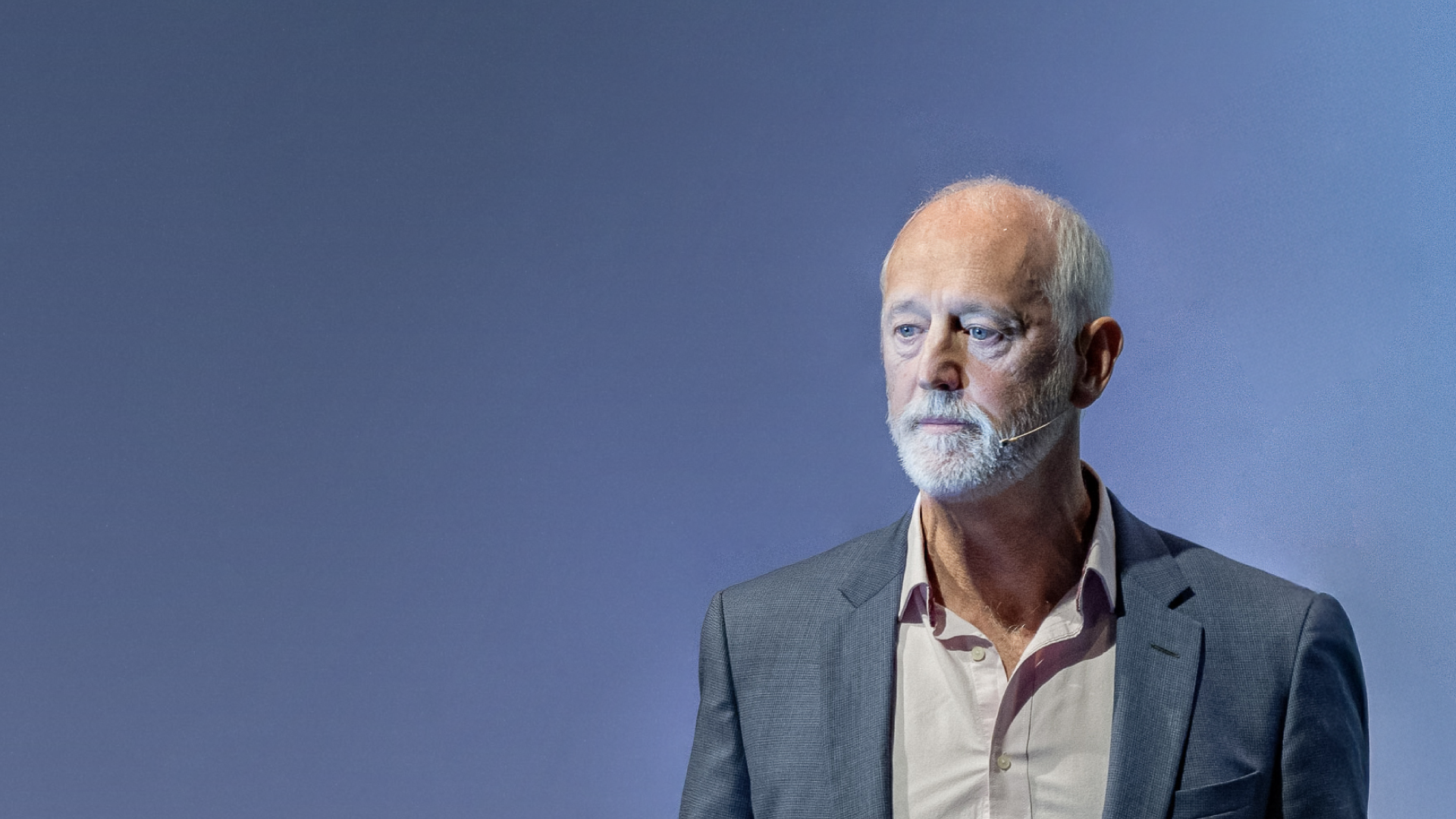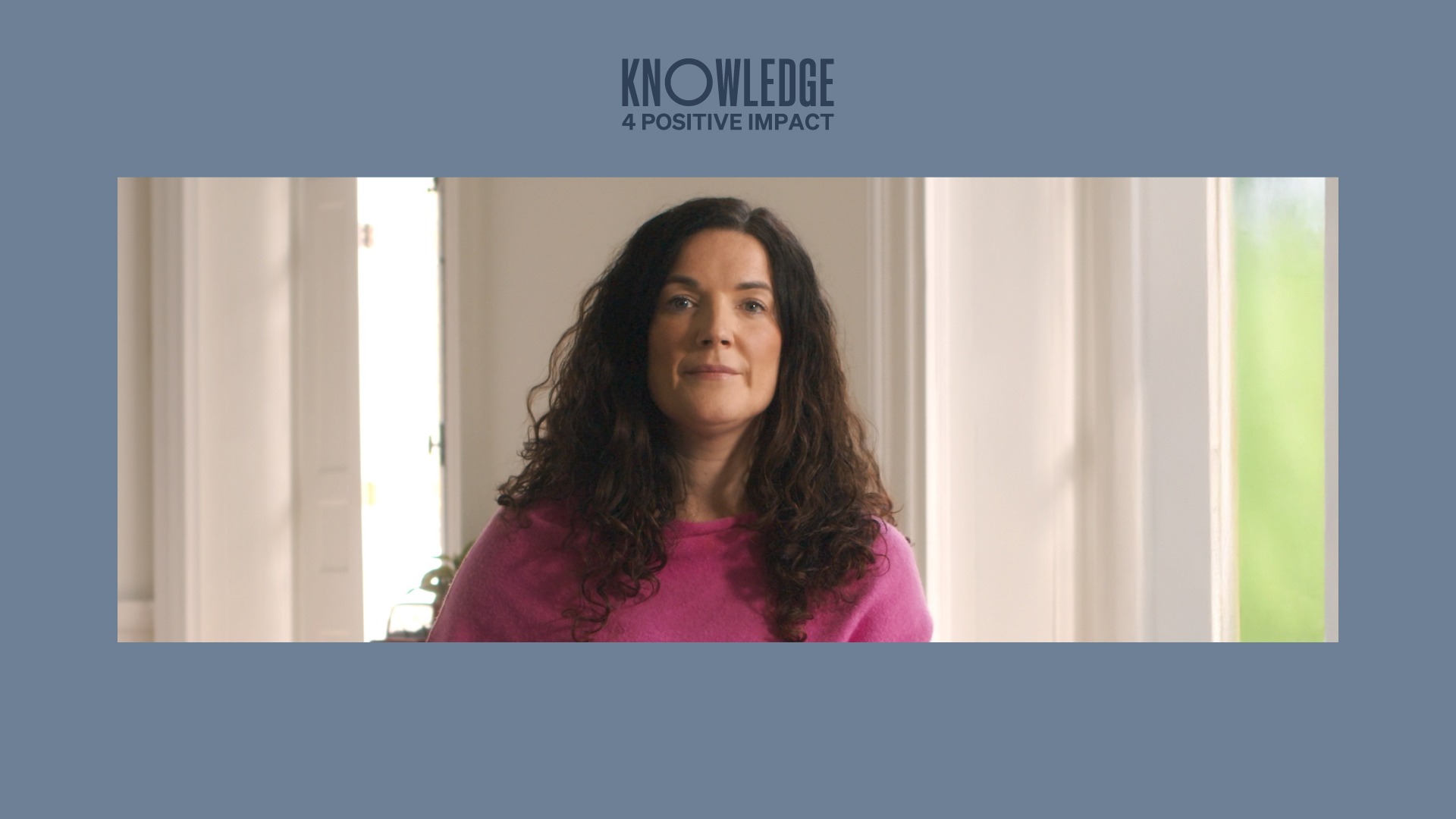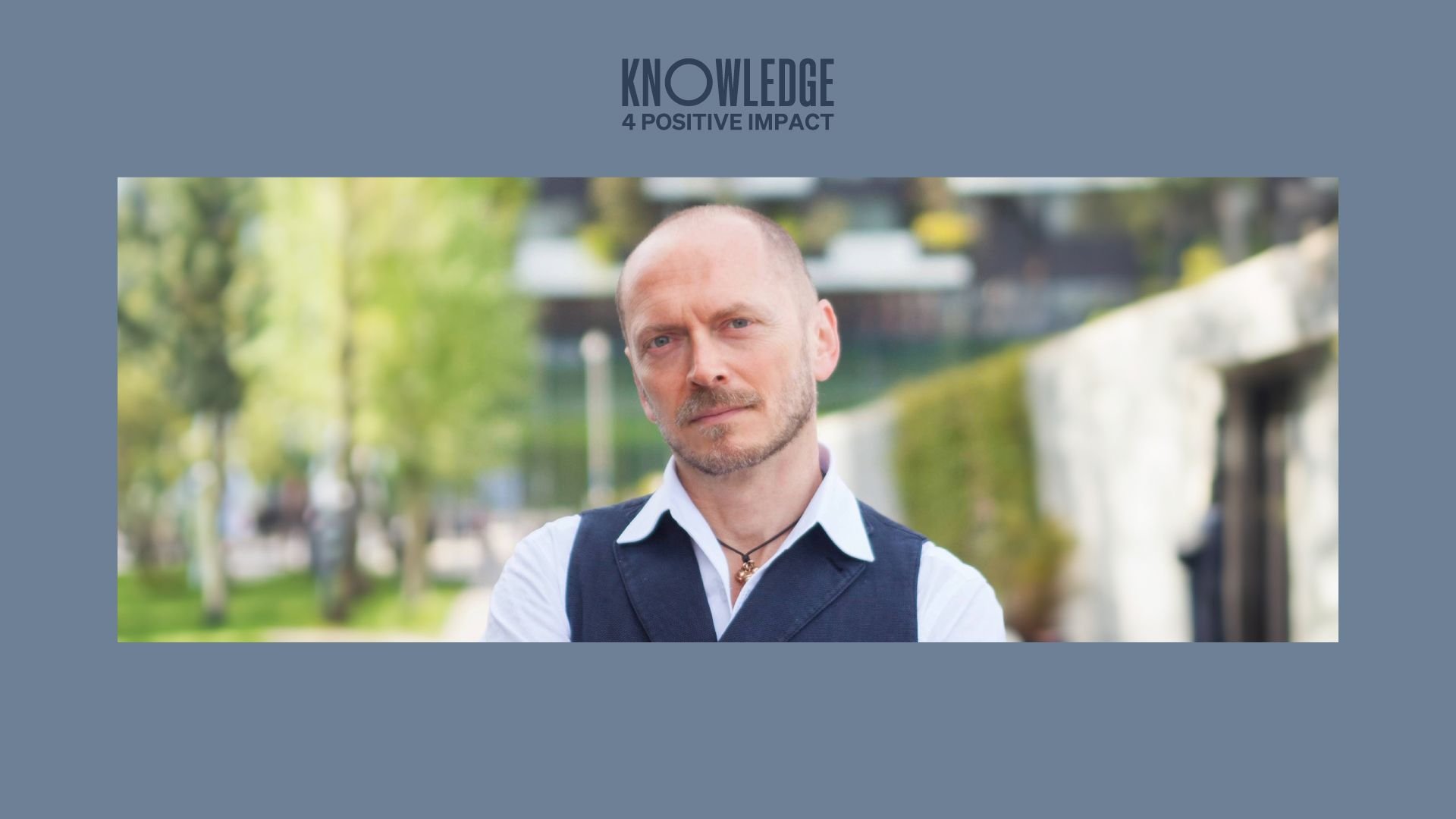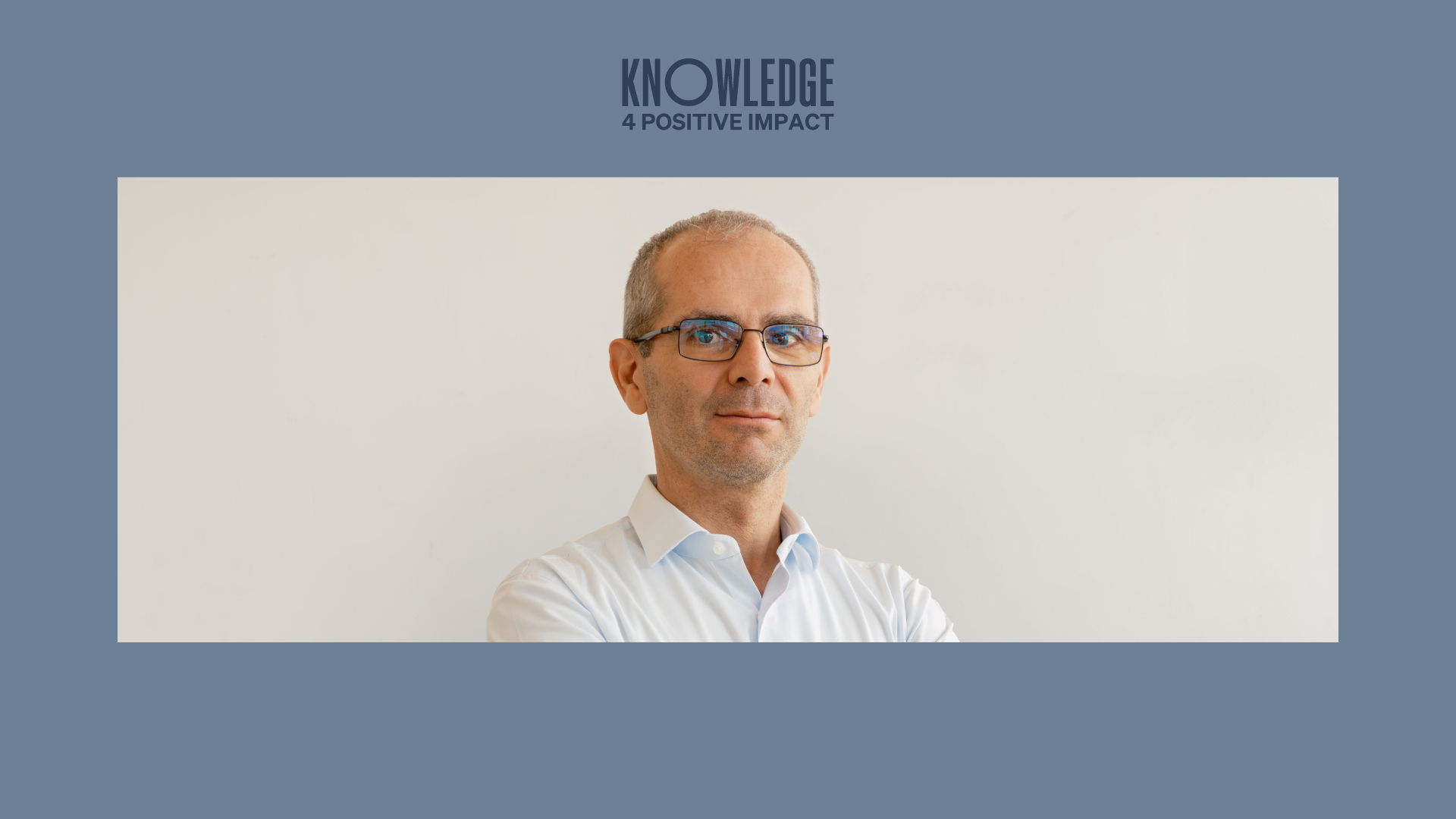- Home
- knowledge 4 positive impact
KNOWLEDGE4 POSITIVE IMPACT
We believe in the power of actions that shape the future, in the strength of ideas that inspire people. At this new editorial hub, Knowledge 4 Positive Impact, we are passionate about sharing knowledge, best practices and success stories about how individuals and organisations can make a positive and concrete impact on society and the environment.
Through articles, videos, interviews and podcasts, created in collaboration with our Faculty and POLIMI GSoM Community, we will address crucial topics such as purpose, innovation and sustainability. Our goal is to inspire tomorrow's leaders to drive change and help make a difference for a more sustainable future.

Being aware of and connected to your purpose is critical, not just for the pursuit of your business. Its extraordinary ability to be an expression of the deepest objectives of any entity and initiative makes purpose an engine of development but also of creativity and energy. In the format of interviews conducted by Darren Rudkin, founder of The Mind at Work, entitled “Purpose Pioneers Series”, we discover that it is everything ─ the foundation and motivation of every activity.


Leadership today is dominated by the relentless pursuit of targets, KPIs, and results, often at the expense of something deeper and more sustaining: purpose. While outcomes provide structure and accountability, an obsession with hitting targets can lead to short-term thinking, burnout, and a hollow sense of achievement. But here’s the shift I propose to you: What if outcomes served a deeper, consciously chosen purpose? When leaders connect with higher purposes, they create momentum that extends beyond singular achievements or failures. Purpose provides energy, direction, and resilience, ensuring that when an outcome is missed, the journey continues - grounded in conscious review, continuous learning and course-correction.


The importance of purpose is increasingly discussed in modern companies because it is clear that it is not an abstract concept, but a tangible force that can transform entire organisations, influencing strategic decisions, corporate culture and the personal growth of employees. Through interviews with managers and business leaders within the “Purpose Pioneers Series” format, Darren Rudkin, founder of The Mind At Work, explores how purpose is changing the perception of work and dynamics in companies, from strategic decisions to day-to-day interactions.


In recent years, Last-Mile Delivery has become one of the most central and debated topics in the logistics world. The exponential growth of e-commerce, consumer expectations for speed and flexibility, and sustainability challenges are profoundly transforming the way products reach the end customer. Delivery is no longer just an operational phase, but a real strategic competitive factor that can influence customer satisfaction and the company’s reputation.

Sustainability & Impact

In the contemporary debate on innovation, few keywords are as evocative as “design thinking” and “sustainability.” These two concepts are often covered separately, but are now becoming ever more intermeshed, giving rise to a new vision of enterprise and progress. The increasing urgency of addressing environmental and social challenges requires us to rethink the way we innovate: no longer by taking linear and predictive approaches, but rather by adopting methods that embrace complexity, enhance creativity and generate long-term, positive impact.


In today’s world, marked by unprecedented economic, technological and social transformations, businesses face a crucial challenge: rediscovering their Purpose, the fundamental reason for their existence. We are not talking about an abstract or merely value-based concept, but a true strategic lever that can guide leadership, inspire innovation, and generate positive, long-term impact. In this scenario, CEOs, other C-levels and entrepreneurs are called upon to question not only what they do, but why they do it: what meaning drives their decisions, what kind of value they want to create for people, society, and the planet.


When a new technology emerges, the first reaction is almost always straightforward: to use it to improve on what had already been done before. This is what happened with the web in the 1990s and is happening again today with artificial intelligence. Early applications simply replicate existing activities, raising fears of human labour being replaced. In the field of music, for example, tools are already available that allow you to create a song in less time than it takes to listen to it. It is technically possible, but the fundamental question remains: does it make sense?

Sustainability & Impact

In an ever-changing economic and social environment, characterised by technological accelerations and increasingly complex challenges, innovation can no longer be seen as a linear process or confined to research and development departments alone. Today, innovation requires transversal, inclusive, and people-centred approaches. In this scenario, design thinking is affirmed as a methodology – or rather, as a culture – that guides organisations in creating effective, sustainable, and desirable solutions. Its potential is expressed in synergy with new technologies, which enable unprecedented methods of prototyping, experimentation and stakeholder engagement.

Sustainability & Impact

In recent years, sustainable finance has become an increasingly central topic in economic and social debate, not only in academia but also among businesses, investors, and policymakers. This is not just a passing fad or a green label to be applied to traditional activities: sustainable finance is now one of the key tools for guiding the transition to a fairer, more resilient, and environmentally friendly economy. At the same time, it represents both a collective responsibility and a concrete opportunity to create value in the medium to long term.


Purpose changes everything, and you need awareness too
The multi-stakeholder approach with a profitable, sustainable company that cares about its staff and looks after its customers and the local community is the true new paradigm that is becoming more and more established in many businesses. This new philosophy ─ which does not only place shareholders at the centre, as in the past ─ is guided by purpose. It focuses on the challenges that this entails and on why companies should embrace change. For his interview format entitled “Purpose Pioneers Series”, Darren Rudkin, founder of The Mind At Work, meets several entrepreneurs who have been able to make purpose the driving force of their company.


Being aware of and connected to your purpose is critical, not just for the pursuit of your business. Its extraordinary ability to be an expression of the deepest objectives of any entity and initiative makes purpose an engine of development but also of creativity and energy. In the format of interviews conducted by Darren Rudkin, founder of The Mind at Work, entitled “Purpose Pioneers Series”, we discover that it is everything ─ the foundation and motivation of every activity.


Leadership today is dominated by the relentless pursuit of targets, KPIs, and results, often at the expense of something deeper and more sustaining: purpose. While outcomes provide structure and accountability, an obsession with hitting targets can lead to short-term thinking, burnout, and a hollow sense of achievement. But here’s the shift I propose to you: What if outcomes served a deeper, consciously chosen purpose? When leaders connect with higher purposes, they create momentum that extends beyond singular achievements or failures. Purpose provides energy, direction, and resilience, ensuring that when an outcome is missed, the journey continues - grounded in conscious review, continuous learning and course-correction.


The importance of purpose is increasingly discussed in modern companies because it is clear that it is not an abstract concept, but a tangible force that can transform entire organisations, influencing strategic decisions, corporate culture and the personal growth of employees. Through interviews with managers and business leaders within the “Purpose Pioneers Series” format, Darren Rudkin, founder of The Mind At Work, explores how purpose is changing the perception of work and dynamics in companies, from strategic decisions to day-to-day interactions.


In recent years, Last-Mile Delivery has become one of the most central and debated topics in the logistics world. The exponential growth of e-commerce, consumer expectations for speed and flexibility, and sustainability challenges are profoundly transforming the way products reach the end customer. Delivery is no longer just an operational phase, but a real strategic competitive factor that can influence customer satisfaction and the company’s reputation.

Sustainability & Impact

In the contemporary debate on innovation, few keywords are as evocative as “design thinking” and “sustainability.” These two concepts are often covered separately, but are now becoming ever more intermeshed, giving rise to a new vision of enterprise and progress. The increasing urgency of addressing environmental and social challenges requires us to rethink the way we innovate: no longer by taking linear and predictive approaches, but rather by adopting methods that embrace complexity, enhance creativity and generate long-term, positive impact.


In today’s world, marked by unprecedented economic, technological and social transformations, businesses face a crucial challenge: rediscovering their Purpose, the fundamental reason for their existence. We are not talking about an abstract or merely value-based concept, but a true strategic lever that can guide leadership, inspire innovation, and generate positive, long-term impact. In this scenario, CEOs, other C-levels and entrepreneurs are called upon to question not only what they do, but why they do it: what meaning drives their decisions, what kind of value they want to create for people, society, and the planet.


When a new technology emerges, the first reaction is almost always straightforward: to use it to improve on what had already been done before. This is what happened with the web in the 1990s and is happening again today with artificial intelligence. Early applications simply replicate existing activities, raising fears of human labour being replaced. In the field of music, for example, tools are already available that allow you to create a song in less time than it takes to listen to it. It is technically possible, but the fundamental question remains: does it make sense?

Sustainability & Impact

In an ever-changing economic and social environment, characterised by technological accelerations and increasingly complex challenges, innovation can no longer be seen as a linear process or confined to research and development departments alone. Today, innovation requires transversal, inclusive, and people-centred approaches. In this scenario, design thinking is affirmed as a methodology – or rather, as a culture – that guides organisations in creating effective, sustainable, and desirable solutions. Its potential is expressed in synergy with new technologies, which enable unprecedented methods of prototyping, experimentation and stakeholder engagement.

Sustainability & Impact

In recent years, sustainable finance has become an increasingly central topic in economic and social debate, not only in academia but also among businesses, investors, and policymakers. This is not just a passing fad or a green label to be applied to traditional activities: sustainable finance is now one of the key tools for guiding the transition to a fairer, more resilient, and environmentally friendly economy. At the same time, it represents both a collective responsibility and a concrete opportunity to create value in the medium to long term.


Purpose changes everything, and you need awareness too
The multi-stakeholder approach with a profitable, sustainable company that cares about its staff and looks after its customers and the local community is the true new paradigm that is becoming more and more established in many businesses. This new philosophy ─ which does not only place shareholders at the centre, as in the past ─ is guided by purpose. It focuses on the challenges that this entails and on why companies should embrace change. For his interview format entitled “Purpose Pioneers Series”, Darren Rudkin, founder of The Mind At Work, meets several entrepreneurs who have been able to make purpose the driving force of their company.


Being aware of and connected to your purpose is critical, not just for the pursuit of your business. Its extraordinary ability to be an expression of the deepest objectives of any entity and initiative makes purpose an engine of development but also of creativity and energy. In the format of interviews conducted by Darren Rudkin, founder of The Mind at Work, entitled “Purpose Pioneers Series”, we discover that it is everything ─ the foundation and motivation of every activity.

